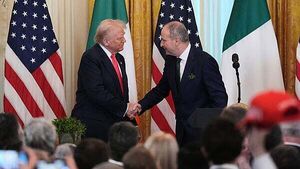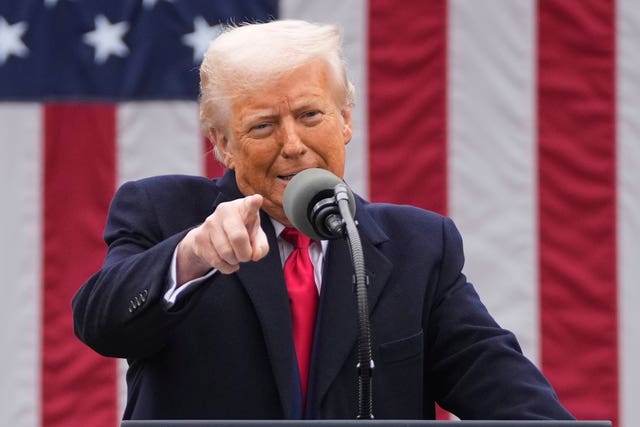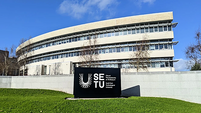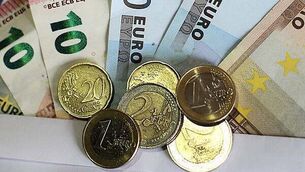Irish pharmaceutical sector avoids 20% US tariff for now

By Cillian Sherlock, PA
Ireland’s crucial pharmaceutical sector appears to have largely avoided a new US tariff rate for now, amid a broader 20 per cent tax imposed on other goods from the European Union.
But the industry, which accounts for a large portion of Irish exports, may be subjected to harsh tariffs later as the White House seeks to increase domestic production.
On Wednesday, US President Donald Trump announced a minimum baseline tariff of 10 per cent on all imports from all countries, with additional higher rates for some regions, including a 20 per cent tax on goods from Ireland and the rest of the EU.
The 10 per cent rate is effective from April 5th while the “individualised reciprocal higher” rates will be implemented from April 9th.
Further information published by the White House after Mr Trump’s address suggests some goods – including pharmaceuticals and semiconductors – “will not be subject to the reciprocal tariff”.
Mr Trump has previously threatened tariffs on these sectors and may yet make further orders.
There had been significant anxiety in Ireland in the run-up to Wednesday’s announcement, with the US administration’s protectionist approach to tariffs and tax posing a major risk to the Irish economy that is in large part sustained by long-standing investment by US multinationals.
The potential impact on the pharmaceutical sector, which employs around 45,000 people, was a particular cause of concern.
Total Irish exports were valued at €223.8 billion last year, with roughly one third going to the US.
Of the €72.6 billion in US imports from Ireland, approximately €58 billion relates to pharmaceuticals and chemicals leaving Ireland.
It had been projected ted this could have been halved if Mr Trump had implemented a 20 per cent tariff on the goods and the EU had responded in kind.
The immediate suggestion that pharmaceuticals are not currently part of the new tariff measures comes despite both Mr Trump and his Commerce Secretary Howard Lutnick previously focusing on Ireland’s moves to attract that sector.
The US administration could still implement higher tariffs on pharmaceuticals at a later date, with the White House warning that future good-specific or sector-specific taxes may be announced. The industry will also have to examine the specifics of the lengthy and technical list of exemptions.

Taoiseach Micheál Martin travelled to Washington DC last month, where the US president told him he did not want “to do anything to hurt Ireland” but added that the trade relationship between the countries should be focused on “fairness”.
He accused the Irish Government of “taking” US pharmaceutical companies through attractive taxation measures and said: “We’re going to take back our wealth and take back a lot of the companies that left.”
He added: “All of a sudden, Ireland has our pharmaceutical companies, this beautiful island of five million people has got the entire US pharmaceutical industry in its grasp.”
Mr Lutnick, who has described Ireland as his favourite “tax scam”, told a podcast last month: “They have all of our (intellectual property) for all our great tech companies and great pharma companies.
“They all put it there because it’s low tax. They don’t pay us, they pay them – so that is going to end.”
During Wednesday’s announcement, Mr Trump said his administration was being “very kind” by implementing tariffs for most trading partners that were essentially half the rate of measures that would be imposed on the US.
Ireland was not specifically mentioned in the address, but Mr Trump emphasised his response to the EU.
He said: “They rip us off, it is so sad to see – it is so pathetic.
“They charge us 39 per cent, we’re going to charge 20 per cent – so we’re charging them essentially half.”
The comments mean that the US administration considers that a “full reciprocal” tariff rate for the EU would be 39 per cent.
On Wednesday, Mr Martin said there was “no justification” for the imposition of the tariffs.
He said the Government will “now reflect with” EU partners on how best to proceed.
He added: “Any action should be proportionate, aimed at defending the interests of our businesses, workers and citizens.
“Now is a time for dialogue, and I believe that a negotiated way forward is the only sensible one. A confrontation is in no one’s interests.”
Mr Martin said the Government was prioritising protecting jobs and the economy.
“By working with Irish-owned companies, multinationals, our EU partners and bilaterally with the US, we can and will weather this storm.”





